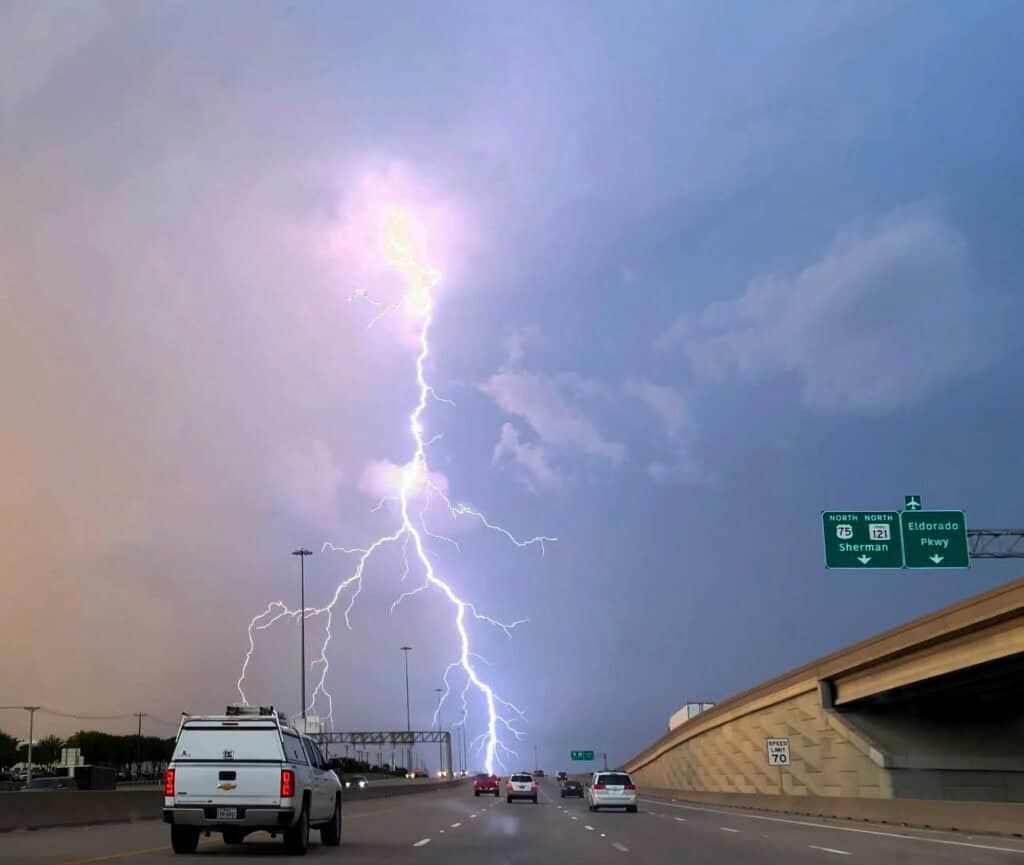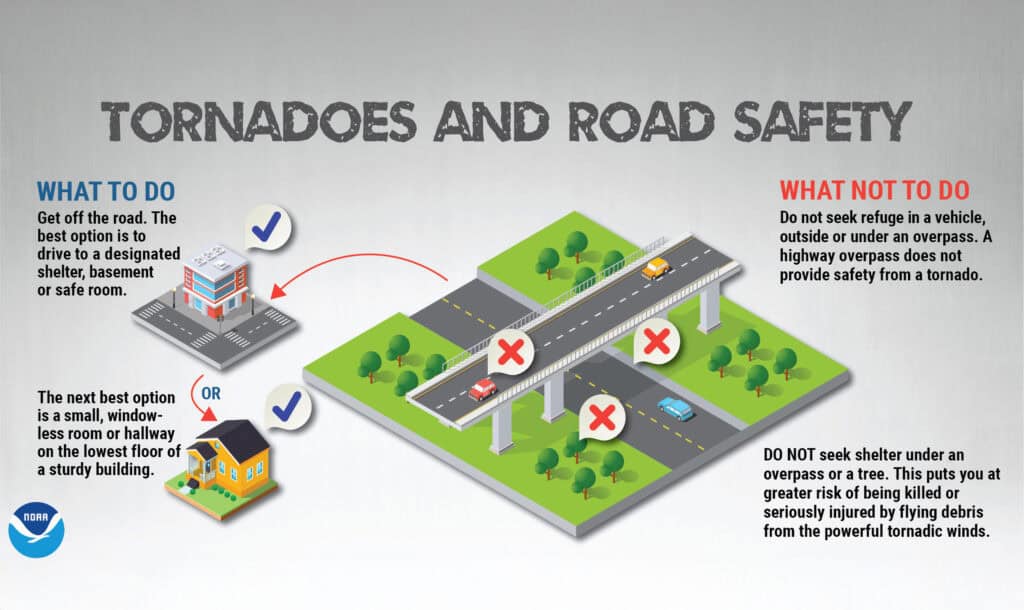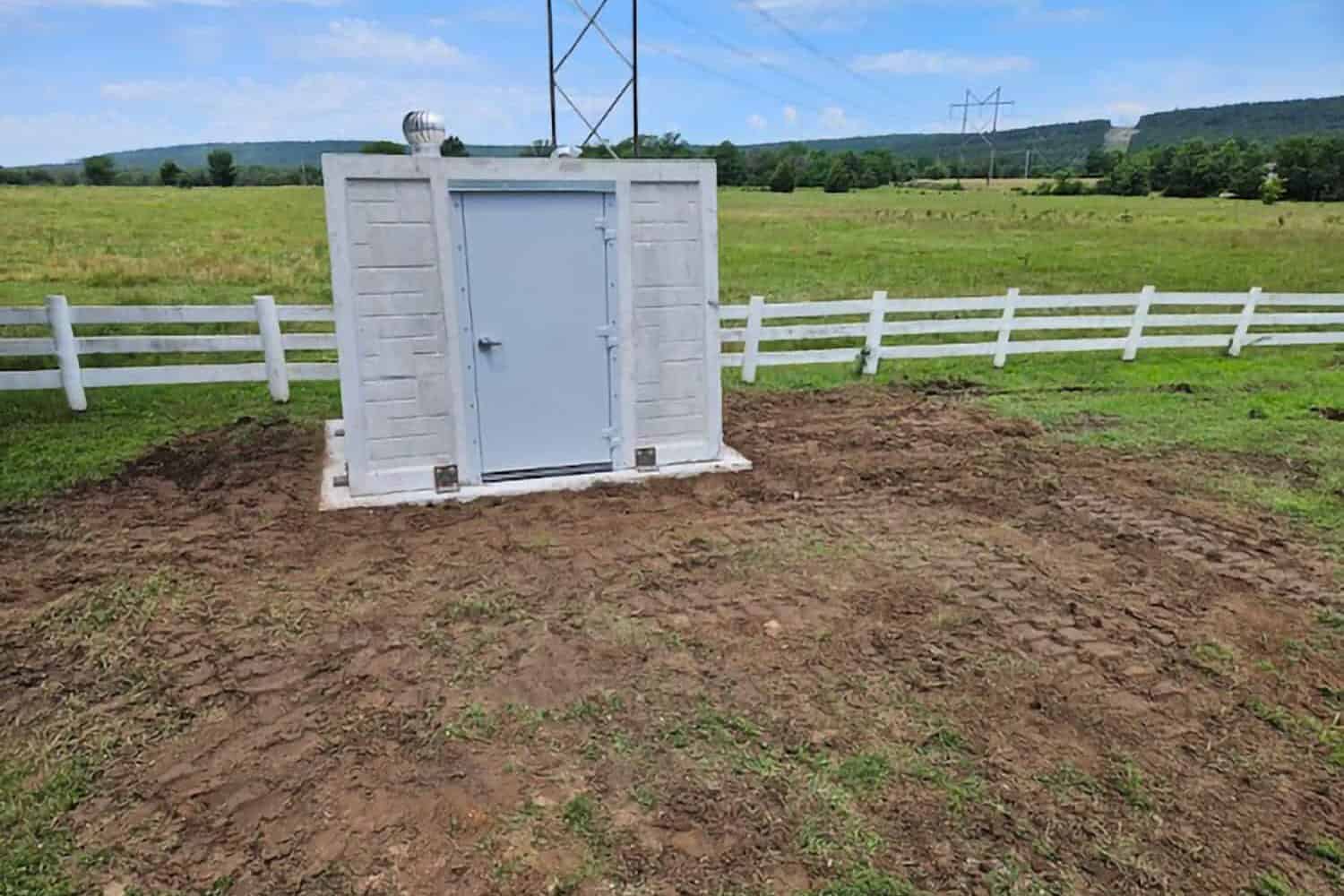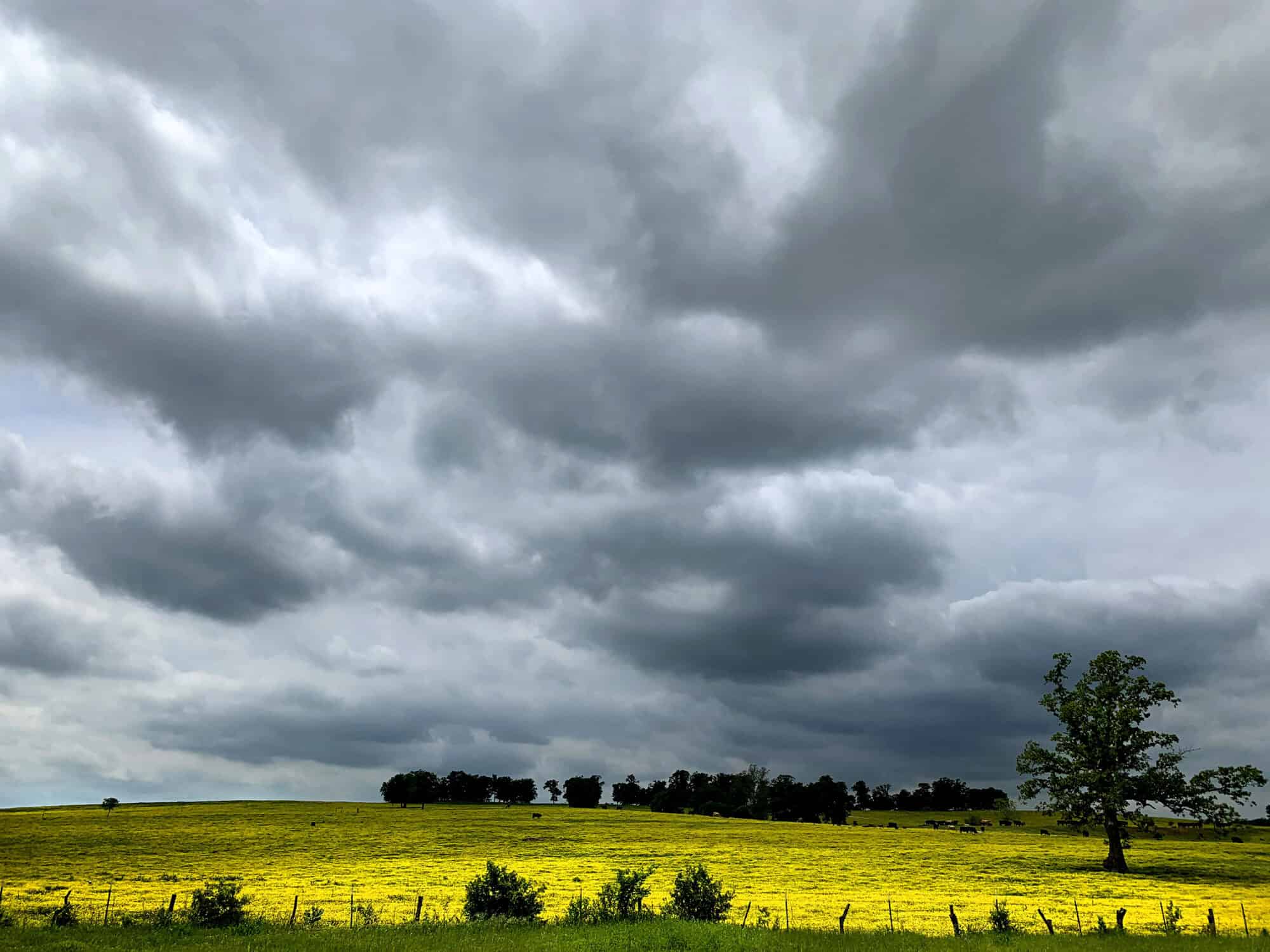As storm season approaches, knowing how to protect yourself, your loved ones and your property is crucial.
Spring and early summer bring an increased risk of severe weather events like tornadoes, hailstorms, high winds and flash flooding.
Fortunately, the Choctaw Nation offers services through Emergency Management and the Housing Department to help tribal members stay safe and recover from severe weather.

A lightning strike can be seen ahead of traffic on U.S. Highway 75 in McKinney, Texas. According to the National Weather Service (NWS), a typical cloud-to-vehicle lightning strike will strike the vehicle’s antenna or along the roofline. The lightning will then pass through the vehicle’s outer metal shell and then through the tires to the ground.
Severe Weather Safety
In 2024 alone, Oklahoma experienced a total of 152 tornadoes across the state.
Understanding the difference between a tornado watch and a tornado warning could save lives.
A tornado watch means conditions are favorable for a tornado to form, so you should be prepared and have a plan in place. A tornado warning, on the other hand, means a tornado has been spotted or detected by radar.
Immediate action is required at this stage, as there is imminent danger to life and property. Seek shelter immediately.
The most serious alert, a tornado emergency, is issued when a violent tornado has touched down and poses an extreme threat to human life and surrounding structures.
The National Weather Service recommends being “weather-ready” at all times. Being “weather-ready” means checking forecasts regularly, staying informed about local news and signing up for weather alerts.
Make a communication plan with your family that includes where to go if a tornado warning is issued, and practice it so everyone knows what to do.
Identify a safe space in your home, such as a basement or an interior room with no windows. If you don’t have a basement or safe room, an interior bathroom or closet can provide protection in many cases.
Keep emergency kits in your safe area stocked with essentials like bottled water, flashlights, batteries, a radio and first-aid supplies.

If a tornado is approaching, take shelter immediately.
Stay tuned in to your local weather station and move quickly to your designated safe space. Avoid large open rooms like gyms or cafeterias, as they are structurally vulnerable during strong winds.
If you’re outdoors, get indoors as quickly as possible.
Mobile homes, tents, sheds and barns are not safe. If you’re in a vehicle and can’t make it to a shelter, you may stay in the car with your head covered or abandon the vehicle and lie flat in a low-lying area like a ditch.
After the storm passes, continue monitoring weather reports, as storms can come in multiple waves.
If someone is injured, provide first aid until emergency crews arrive.
Reach out to family and friends to let them know you’re safe.
When assessing damage to your property, wear long sleeves, pants and sturdy shoes. Be cautious around damaged buildings and avoid downed power lines. Document any damage to your property through clear photos and written details.
Storm Shelter Program

To assist tribal members in preparing for storms, the Choctaw Nation Housing Department offers a storm shelter grant for eligible members.
This one-time grant applies to both new and existing homes as long as the shelter is installed at the applicant’s primary residence in Oklahoma, Texas, Kansas, Missouri and Arkansas.
For mobile homes, the applicant must own both the house and the land.
Those 45 or older may qualify for the full grant amount of $3,500, while those between the ages of 18 and 44 may be eligible for $1,750. Additionally, applicants 65 and over or those with a documented ambulatory disability may qualify for a $5,000 grant toward an above-ground shelter.
Visit the storm shelter page or call 580-326-7521 for more information.
The Choctaw Nation’s Emergency Management Department also offers support through its Wind Mitigation Program, which provides a $1,500 voucher for approved home reinforcement projects for tribal members within the service area.
These home upgrades include strengthening garage doors, installing hurricane straps on roofs, or applying shatter-resistant film to windows.
Homeowners may also use the voucher to install storm shutters or remove dead trees and limbs that could fall during high winds. These improvements can significantly reduce storm damage and increase household safety.
Storms can be unpredictable, but with proper preparation and support from programs like those listed in this story, tribal members can be better equipped to face severe weather.
TORNADO MYTHS
- Tornadoes Never Strike Twice – Cordell, Kansas, was struck by a tornado on May 20, three years in a row (1916, 1917 and 1918). In Guy, Arkansas, three tornadoes hit the same church on the same day.
- Big Cities and their Tall Buildings are Protected from Tornadoes – Many cities in the U.S. have been directly hit by tornadoes in recent years, including Miami, Salt Lake City, Birmingham, Oklahoma City, Houston, Fort Worth and Nashville.
- Large Lakes Protect Nearby Areas from Tornadoes – While cold water and the cool air on top of the lake can provide a locally stable environment, chances are a thunderstorm producing a tornado moving toward a cold lake has something much larger driving it than the cold water can inhibit.
- Open Windows Prior to a Tornado Strike to Equalize Pressure Inside the House to Prevent it from Exploding – Opening the windows is absolutely useless, a waste of precious time and can be very dangerous. Don’t do it.
Information via National Weather Service
